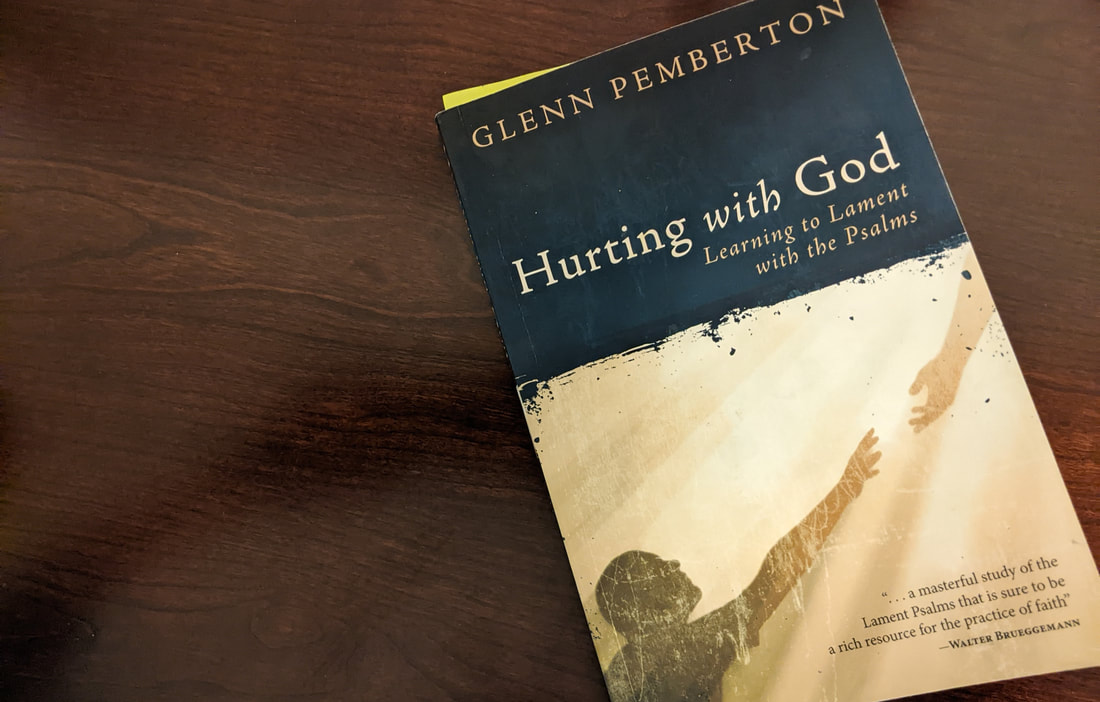|
-Pastor Melissa Fain- I have only done one Tuesday Review where I was asked to read a book and write about it. This is not that one. In this case: A friend saw a previous post I had written, suggested this book, and my husband bought it for me as a Christmas gift. I typically follow a very simple guide to reviewing something:
This one will be helpful, and unlike my recent reviews, it is a solid, good book. As I wrote previously, it is so refreshing to take a break from the brackish readings of the likes of Zacharias, and take a cool flowing trip through Pemberton. I plan to answer some questions in this review: Who is this book for? What makes it worthwhile to read? Where do I feel the tension has been released? In other words, where does it fall apart (just a little)? Let’s begin! Who is the book for?As a minister, there were times I felt I was reading a straight up commentary. Commentaries are typically what ministers use to get perspective on a scripture. I don’t just sit down and read commentary. I use it like I would an encyclopedia. If I wanted to know about a chapter in Luke, I’ll pick up a few of my Luke commentaries, and just read the section on that specific chapter. In that way, this book is for ministers. Now that I’ve read it, I’ll place it among my research section, and I’ll easily be able to find what I need when I eventually preach from a lament Psalm. As a person who has felt trauma multiple times, it was a warm hug. It is completely appropriate to get this book, read the first third, find your lament, read that chapter, and then read the final third. There were times I could only read a chapter, and then I had to walk it off. I haven’t had that kind of theological reflection of a writing in… well this was a first. There were times I spiritually needed this book. I believe there are others who could use it too, if they only knew it existed. As someone who has spent decades in the institutional building of a church, this book would make an amazing Bible study paired with “Act Normal: Memoir of a Stumbling Block,” by Kristy Burmeister. I need to get Act Normal in the Church. Kristy’s voice needs to be heard apart from the antiseptic messages, but within their bleached walls. Dr. Pemberton’s book is the perfect partner for that task. Her book is one long lament, and seeing it as such helps the reader take her words in. What makes this book worthwhile to read?Once you’ve actually sung true thanksgiving to God after suffering through lament, it’s so off-putting to hear thanksgiving severed from the reason to give thanks. To those still in the midst of lament caused by the Church, it’s not only off-putting, it’s down right scary. I have this sneaky suspicion that many of us want to lament, but we are afraid of how it will look. Any sort of shadow, or negativity is culturally seen as against God. This book clearly shows the untruth in that cultural theology. This is a voice who knows what he’s saying, because he has done the hard research to bring it all together. As much as I was angry with the chapter that discussed Psalm 137, the book landed the ending. Which brings me to one minor critique… Where is the tension lost?If I could summarize the book in one sentence it would be this: Trust God enough to speak the truth in your prayers. He couldn’t find the truth in Psalm 137, because he only heard the words being spoken, not the meaning beyond them. What baffles me, much of what he says in the very next chapter, if also considered for the previous chapter, would have made it all more palatable. It makes me wonder if 137 was part of what had already been written before he transitioned from someone who talked about lament, to someone who actually lived through it. (He mentions ⅔ of the book being written and gathering dust when he went through his own anguish.) I do invite you to read what I wrote on his take on Psalm 137, but I have one more greater point for this particular post. Talking to God has to start somewhere. It might even start with a lie. If we are so afraid that the only words spoken need to be truthful words, we could scare people out of praying all together. I would summarize prayer in this way: Prayer is bringing yourself, in all that you are, before God in sacrifice. It might involve lies. “I’m a good person,” sounds great on paper, but put that phrase in Hitler’s mouth, and we have a problem. It’s not about the words, but the meaning behind and beyond the words. Sometimes the meaning behind a lie is, “Listen, I’m uncomfortable being in this space, I don’t even know if I believe what I’m doing, but I’m willing to give it a try.” How are we to discount that prayer just because the physical words were a lie? ConclusionThis was a solid book that I would unhesitantly suggest to anyone going through a crisis. It sharpened my beliefs on lament, added to my spiritual journey, and left me in a moment of thanksgiving to God. What more can you ask for from a religious book?
On another note- it’s time to go back into the dung heap. My next Tuesday review is not going to be any of the things I mentioned above. Just as we need to sharpen good theology, we need to obliterate the bad. I’m reading a book on the Dugger family. God help me. |
Categories
All
Archives
October 2023
|




 RSS Feed
RSS Feed